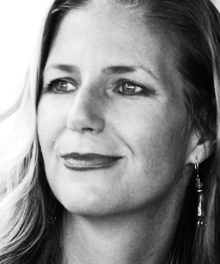 I met Mark “Puck” Myckleby through his charming son Keaton, one of four 7th graders from Riverview Charter School who came to shadow us on “career day” back in February. The kids lucked out, because “career day” happened to coincide with day one of the Beaufort International Film Festival, where we were media sponsors.
I met Mark “Puck” Myckleby through his charming son Keaton, one of four 7th graders from Riverview Charter School who came to shadow us on “career day” back in February. The kids lucked out, because “career day” happened to coincide with day one of the Beaufort International Film Festival, where we were media sponsors.
This meant that instead of spending two hours at the humble (but lovable!) Lowcountry Weekly office, watching us stare at our computer screens, they got to hang out at the glamorously-transformed USCB Center for the Arts, hobnobbing with independent filmmakers from all over the country, and even taking in a few short films.
But if you ask me, Keaton should have just stayed home and shadowed his dad. Puck Myckleby’s job is way cooler than mine, and possibly even cooler than that of the coolest indie filmmaker. A recently retired Marine Corps officer, Puck works for the New America Foundation, a non-partisan think tank out of Washington, DC, where his basic assignment is – get this! – to devise and implement a “grand strategy” for the nation.
We ran into the Mycklebys at Habersham last weekend, at Artisans and Antiques, and Keaton introduced us to his parents. When I heard the phrase “think tank,” I was all over it and asked Puck for an interview. (Working for a “think tank” has long been my secret fantasy job; though I can’t imagine what anybody would pay me to think about.) We met up at Common Ground a few mornings later, and we only had an hour to talk – not long when you’re talking national grand strategy. Puck had an important call to make, and then was heading out of town for a week on “strategy” business. Turns out you have to do a lot more than just thinking when you work for a think tank. (Yes, I was slightly disillusioned.)
For one thing, you have to write papers. Big, important papers. A couple of years ago, Col. Mark “Puck” Myckleby, USMC and Capt. Wayne Porter, USN – writing together under the pseudonym “Mr. Y” – published A National Strategic Narrative, with a preface by former director of policy for the State Department, Anne-Marie Slaughter. (Slaughter was recently named president of the New American Foundation.) The Narrative is quite a piece of work – touching on every aspect of America’s future – and I can’t begin to do it justice here. But the writers outline the scope of their intentions at the beginning:
“This Strategic Narrative is intended to frame our National policy decisions regarding investment, security, economic development, the environment, and engagement well into this century. It is built upon the premise that we must sustain our enduring national interests – prosperity and security – within a ‘strategic ecosystem,’ at home and abroad; that in complexity and uncertainty, there are opportunities and hope, as well as challenges, risk, and threat. The primary approach this Strategic Narrative advocates to achieve sustainable prosperity and security, is through the application of credible influence and strength, the pursuit of fair competition, acknowledgement of interdependencies and converging interests, and adaptation to complex, dynamic systems – all bounded by our national values.”
Trust me, you want to read the whole thing for yourself. (You can do that here: http://nationalstrategicnarrative.org/) These guys not only have vision . . . they have a serious plan; it’s both far-reaching and deep-rooted. And, the most beautiful part? It is truly non-partisan. They don’t hesitate to slaughter sacred cows – of both the right and the left – and they’re clearly hoping to harness the best of what each party stands for. (For starters, “Mr. Y’s'” environmental sensibilities should please the left, while his free market enthusiasms should win him fans on the right.) Puck tells me he’s “blissfully independent,” and that independent spirit comes through in the Strategic Narrative. It really does have “something for everybody,” and should appeal to both conservatives and progressives alike, I think… if they’re willing to put aside their creaky old notions about how things are done. (And maybe a few tired stereotypes.)
The overall thrust of the Strategic Narrative – as I understand it – is that we as a nation need to move from a strategy of “containment” to one of “sustainment.” And yes, “sustainment” is just a neat, rhyme-y word for “sustainability.” But the sustainability they’re talking about goes far beyond the ubiquitous environmental buzzword we all know and love. Again, I’ll let the writers elaborate:
“America’s national strategy in the second half of the last century was anchored in the belief that our global environment is a closed system to be controlled by mankind – through technology, power, and determination – to achieve security and prosperity. From that perspective, anything that challenged our national interests was perceived as a threat or a risk to be managed. For forty years our nation prospered and was kept secure through a strategy of containment. That strategy relied on control, deterrence, and the conviction that given the choice, people the world over share our vision for a better tomorrow. America emerged from the Twentieth Century as the most powerful nation on earth. But we failed to recognize that dominance, like fossil fuel, is not a sustainable source of energy. The new century brought with it a reminder that the world, in fact, is a complex, open system – constantly changing. And change brings with it uncertainty. What we really failed to recognize, is that in uncertainty and change, there is opportunity and hope.
“It is time for America to re-focus our national interests and principles through a long lens on the global environment of tomorrow. It is time to move beyond a strategy of containment to a strategy of sustainment (sustainability); from an emphasis on power and control to an emphasis on strength and influence; from a defensive posture of exclusion, to a proactive posture of engagement…”
‘Mr. Y’ has plenty of ideas about how to do all this, but I have neither the space nor the mental capacity to explain them in detail. Again, you should really read The Strategic Narrative for yourself. Also, check out Puck’s project, the Smart Strategy Initiative, which keeps him hopping all over the country talking about this stuff and calling folks to action. (http://smartstrategy.newamerica.net)
So why am I writing about this? It’s not my usual schtick. Well, aside from the fact that I’m sick of my schtick, I just thought we could all use a little inspiration right about now. Last week’s terrorist attack on Boston combined with the Senate vote on gun control unleashed a whole new round of familial bickering here in the US. The partisan divide grows ever wider, as folks on either side yell louder and louder across that broadening canyon, to dwindling avail. (I can’t imagine they’re hearing anything more than their own echoes at this point.) If you’re as frustrated and depressed by this self-perpetuating family feud as I am, I thought it might cheer you to know there are people out there – real players – who simply refuse to play that game. They are people with vision and energy and an actual plan – nay, a strategy! And one of those people – when he’s not traveling the country, spreading the word – lives right here in Beaufort. Isn’t that great?
In her preface to A National Strategic Narrative, Ann-Marie Slaughter says, “It is written by two military men who have put their lives on the line in the defense of their country and who are non-partisan by profession and conviction. Their insights and ideas should spark a national conversation. All it takes is for politicians, pundits, journalists, businesspeople, civic leaders, and engaged citizens across the country to read and respond.”
This journalist is honored to do her part. Please read more about the New America Foundation at www.newamerica.net.





